H2O - The compound that sustains life
In my high school chemistry class, I was taught that water is a universal solvent. I did understand that to mean water can dissolve almost any solute. But little did I know how much versatile water is, in fact I didn't realize how important water is to the very existence of life. Life cannot exist without air as it also forms basis for many interesting phenomena, likewise life without water will be impossible. Water, as much as air also forms basis for so many phenomena, and this article will take a look at that!
In my previous blog, I took an integral look at air. I promised to dissect each of the four classical element. This time, it's water's turn.
Water is matter just as air is, it can be quantified both in terms of weight and volume. It is known to be colorless and odorless. It makes up for over 70% of the earth, and exists in three states. Water has proven to be an important support to life on this planet, and can only be found on this amazing planet earth! But what makes water? And how important can it be? Two atoms of Hydrogen and one atom of Oxygen are bonded chemically by a bond referred to as a covalent chemical bond, to form one molecule called water. Water is a very stable compound and it is arguably the most interesting compound to exist. Water exists in three (3) forms: Liquid – which we refer to as water; gaseous – known as vapor; and solid – known as ice. Each of these state exhibits interesting properties, which equals no other compound in existence. Some of these properties will be looked at in this article. Take for instance, why does ice float on cold water? Why does water break a bottle while undergoing freezing? How is possible for insect to walk on water without sinking? Can water defy gravity? Let’s take a look at some of these properties.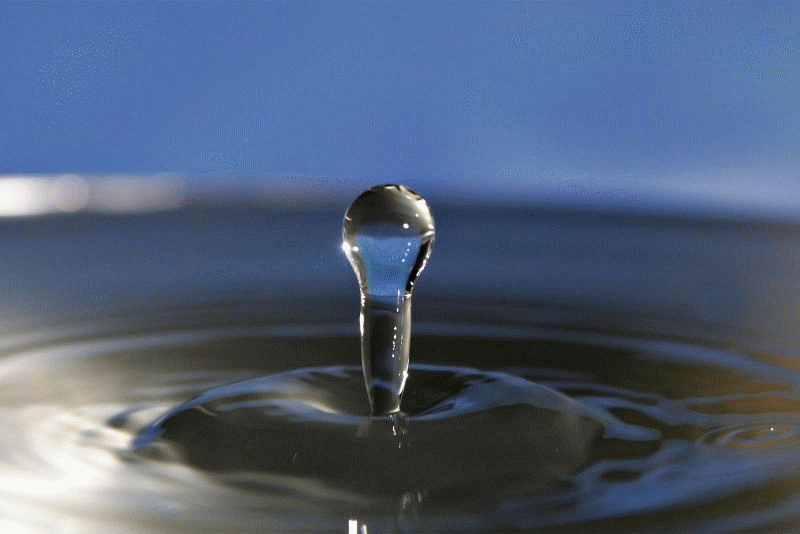

Expansion During Freezing
Generally, liquids contracts when they are frozen and their density increases, but water exhibits a different behavior. When water changes state from liquid to solid, it is called freezing, and the frozen state of water is referred to as ice. Scientific research has shown that water contracts as its temperature drops towards zero, and at 4oc, contraction stops and expansion begins. Water expands till it reaches 0oc, when it changes state from liquid to solid. When it expands, it increases in volume, then decreases in density. This behavior is what is termed Anomalous expansion of water.
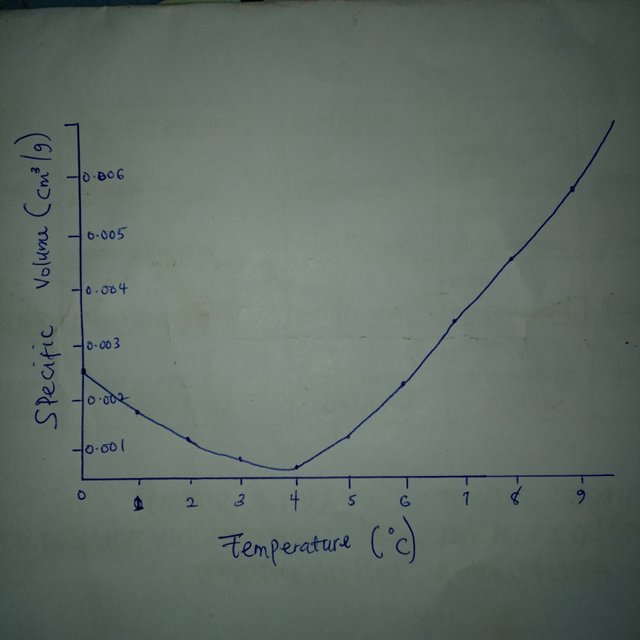
Density is defined as the ratio of mass to volume. So the relationship between volume and density is inverse, this means that when one increases, the other decreases correspondingly. This is solely responsible for ice floating when placed in water. Is this property relevant to us? Absolutely! Apart from the fact that you need to factor in some extra space in a container when you intend freeze water, there’s the aquatic life factor. How do I mean? Suppose ice do not float, aquatic life will not survive winter in certain region. When the surrounding temperature drops many degrees less zero, lakes and other water bodies begin to freeze, and these ices floats and gradually covers the entire surface of the water, thereby preventing the water beneath from freezing too, and saving aquatic life. Expansion of water makes this possible! For this same reason, it is not advisable to leave a bottled drink in the freezer for too long, you might end up losing the drink after all.
Surface Tension
I have at some point thought about insects that walk on water and how it was even possible. Thanks to science, I got to know that it was due to surface tension.
Surface tension is the cohesive force that exists between molecules of a liquid, like water, which makes it behave like an elastic body. For water, hydrogen bonds between the molecules of water makes this happen. This property enables insect with low body mass to walk or crawl on water without sinking. But is this the only benefit of surface tension? Well no, we could care less about an insect trying to pull off a miracle and talk about mode of feeding in plants.
Plants gets their food by trapping nutrients from the sun through a process known as photosynthesis, and water is sucked from the soil by the roots. But how does the water gets up to the tree, regardless its height? Simply by a tension-cohesion mechanism. The forces between molecules of water is so strong that they remain attached to one another as they are pulled up through the tissue of the plant. Negative pressure caused by transpiration is responsible for pulling the water but the cohesion in water is responsible for the continued upward flow of water through the xylem.
This similar principle is put into practice when you want to transfer water from one container to another using hose. A suction pressure is applied to one end of the hose whilst the other end is inside the water. The water is pulled up by the negative pressure and into the empty container, but it continues to flow into the container because of the tension-cohesion mechanism.
Water exhibits so many interesting behaviors at individual state it exist in. now let’s take a look at certain phenomena which has water as its basis.
Ocean Tides
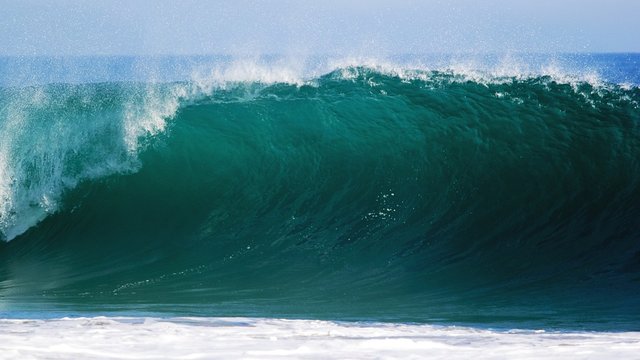
Are you always excited to go to the beach? What fascinates you most about beaches? Is it the coolness of its breeze, the sight of a sunset over the ocean or maybe the rise and fall of the ocean tides? For my part, I get fascinated with the sight of water and water alone. I ask myself what causes that rise and fall of the ocean water close sea shore. At first thought, I would have gone with winds being the cause of the tides, and maybe your choice wouldn’t have been different either. If you had gone with winds, then am sorry to burst it to you that you’re wrong. So what if I say the moon and sun is responsible for rides? Then that would be correct. The moon and sun exert gravitational forces on the ocean causing it to rise and fall. The moon being the closest to the earth has more force. The rate and level of the tide will depend on the position of the moon and sun with respect to the earth. Is it not amazing to behold the waters rise and fall, and listen to the rumble of the sea! It was late August 2017, I heard the news that a category 4 hurricane, named Harvey just hit shore and a lot of flooding was experienced in Florida and Texas in the United States. Such news may not be entirely unusual for Americans, as other hurricanes have hit before now. But what causes hurricanes and how are they formed? The process has a lot to do with the air, as air and water both contribute to certain phenomena. If you took some time to peruse my previous article on air, you would have learnt something about tornadoes. Actually, they have similar properties with hurricanes. Warm moisture is always the start. Warm moist air on the ocean naturally rise and create a low pressure situation on around the area it is rising from. Due to the low pressure situation, surrounding air is forced there to balance the pressure, but ends up getting warm and rises too, this process continues whilst the rising warm moisture gets to condense into cloud and the wind makes it move in a fast and circular way. This entire cloud and wind process continues and grows in speed and magnitude. At about 30 mph, it is referred to as Tropical Storm, but at about 74 mph, it becomes a category 1 hurricane. The obvious question is, why does it affect those on the land? My air post shows how rain forms, and also explains the principle of precipitation. So when the storm moves towards a cooler air, either on sea or at shore, the speed drastically reduces and gradually dies. If it happens to hit shore at that hurricane speed, the storm is very enormous and the rainfall is unending. The excessive rainfall is due to the massive amount of cloud it has gathered. It eventually causes a lot of flooding like in the case of Harvey, and the fast moving wind destroys properties. This phenomena is not always referred to as hurricane. The general nomenclature is Tropical Cyclone. Only when it hits some parts of the world does it take new names like typhoon - when it occurs in the northwestern Pacific or hurricane - when in the Atlantic or northeastern pacific, while in the Indian or South Pacific, it retains its original name - tropical cyclone. However, there exist yet another sea to land disaster that is greater than hurricanes. For the inhabitants of about 14 countries along the west coast of Indonesia, it was a year they would live to remember, 2004. Many survivors woke up to a different world, a magnitude 9.3 earthquake had strike below the Indian Ocean and caused series of tsunami waves which ended up killing over 230,000 people and leaving millions homeless. It became the 3rd deadliest natural disasters to hit planet earth. What are tsunamis, and how are they formed? Tsunamis are very large waves often formed by earthquake below the ocean or by landslide below the ocean. They can rise as high as 30m (100ft), sometimes characterised by a shore drawback. But how does it get formed? When an earthquake occur below the ocean, there's a serious disturbance to the water, then big waves are formed and they continue to rise higher as they move towards shore. These waves can travel long distances and can attain enough energy to continue on land. A landslide or volcanic eruption below the ocean can cause a similar disturbance which would produce high rise waves enough to cause disaster. The next time you visit a beach, remember that as peaceful as that water is, if disturbed by quake in the earth, it becomes deadly! As to what causes earthquake, it will be discussed in the next article! The rain had just fallen, the ground is wet, but you look up the sky and towards the horizon, then you behold an array of beautiful colors arranged next to one another in a semi circular shape. A rainbow 🌈 it is. Anyone who has read the Bible or have heard certain stories of ancient times would have a clue as to how it gets to occur. @gentleshaid will certainly not find it hard to answer or narrate the story behind it, because of haven read My Book of Bible Stories, but might want to know the science behind such beauty. Let's take a look! Light inherently contains beautiful colors, which can not been seen unless it is dispersed into distinctive colors of varying wavelength when it passes a fluid or certain medium, which we refer to as visible spectrum. White light contains seven (7) distinctive colors, which apparently can be seen in a rainbow 🌈 . But exactly what makes the rainbow glow after rainfall? Sir Isaac Newton demonstrated how light can be dispersed when it passes through glass prism, and the previous air post shows how light can be dispersed when it passes through layers of the atmosphere. But what about water? Can it disperse light? Yes, it can! After a rainfall, water droplets might be suspended in the atmosphere and rays of the sun passes through, what happens is reflection and refraction. Often times the light is refracted upon hitting the droplets, then inside the droplets, it is reflected back by the inner walls of the droplets and then refracted upon leaving the droplets. This process disperses the white light into an array of ROYGBIV. Such a beautiful sight to behold! If you want to see a rainbow more often, this is what you need to do. After a rainfall, and there happen to be sunshine in the opposite direction, back the rays of sunlight, and raise your eyes at about 40 degrees above the ground, you are likely to see a rainbow. As for the story behind it, read Genesis 9:11-16, if you care to know! As a little spice, before I conclude, there's something special here in Nigeria. If you plan to visit this beautiful country sometimes soon, make sure you visit Ikogosi warm spring in Ekiti State. What happens there, you may wonder.
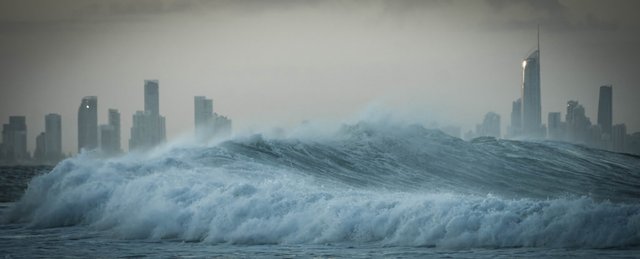


It is one of what many refer to as wonders in creation. Warm water from the top of a mountain flows down to a confluence, where it meets cold water from another source at close proximity. Research says the warm spring attains about 70oc at the source while about 30oc at the confluence.
Many say it is a mystery, but what I think is that the mountain that the water flows from is likely volcanic, and it heats the water. But regardless, it is something cool to behold!
Conclusion
Water is life! I could have dwelt on the chemical and physical properties of water or on the water cycle, but I wanted to share some scientific knowledge on things we may know or might have heard of. In another article, we will take a look at earth, is there anything to learn about our beautiful planet?
Let's see!
References

Amazing and Remarkable Properties of Water
If you write STEM (Science, Technology, Engineering, and Mathematics) related posts, consider joining #steemSTEM on steemit chat or discord here. If you are from Nigeria, you may want to include the #stemng tag in your post. You can visit this blog by @stemng for more details.

You can also join us at Promo-Mentors, to improve your blogging skills. Join our discord channel and meet awesome mentors who are willing and ready to shape your writing skills.


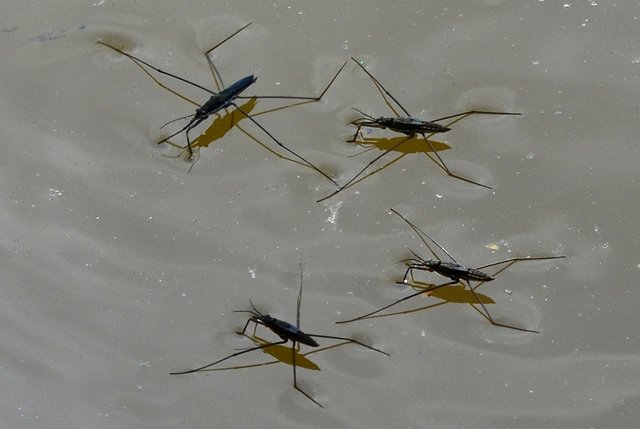
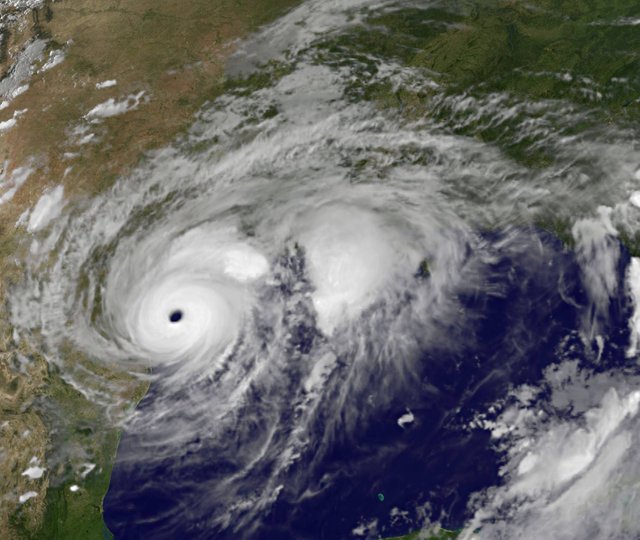
.jpeg)
the vital liquid for all living beings.
There are countries that lack it.
I hear that a lot. Very sad. @evecap mentioned something like that. We really can't do without water. Thanks for stopping by
Just like your article on "Air" I doff my hat for your creativity on this one as well. Kudos man!
Thanks a lot for taking your time to read! Earth is next
Looks like this is the "Avatar series" 😁😁😁Anticipating by the way!!!
Yeah! But don't expect a medley of all four elements, there's no avatar state here! 😃
Lol... the Avatar state will be cool you know. Let's see the four elements combined.
Maybe I'll give it a try
It would be nice to see that.
Nothing that we can't really understand this time 😂😂😂
Water is life, it is as simple as that.
You have written well.
Dear Water, you are the life as the writer has narrated, pls lets get the best of you and not the other side.
I salute you creativity, Nicely written...Kudos
Abi o. Thanks jare
Water is life... I remember song by a great musician that once lived... "water e no get enemy"
No matter what natural disaster water has brought to you. You can't stop using it.. Good job
We are just so bonded together!
Lol
Interesting one just like your last post.
Water is life
Thanks.
The importance of water can never be overemphasized. It is the most common liquid on earth. In a nutshell, water is life itself.
You did justice to this! Wehdon sir!!!
Thanks buddy!
You're welcome
Another awesome piece sir.
Water is one very important part of our lives. Its impact in power generation sector, its use in machinery for cooling and a host of others make it a darling for us all.
sips water from a glass
Make sure you are sipping clean water! Otherwise, all the best for you!
There is really no life without water, and like they say there's nothing on this earth that doesn't have its own disadvantage and water is mo exception
Fantastic post man.... I can't wait to read your next post @real2josh
Thanks for taking your time to read this one.
Water is really life. Thanks for sharing
😉 thanks for reading